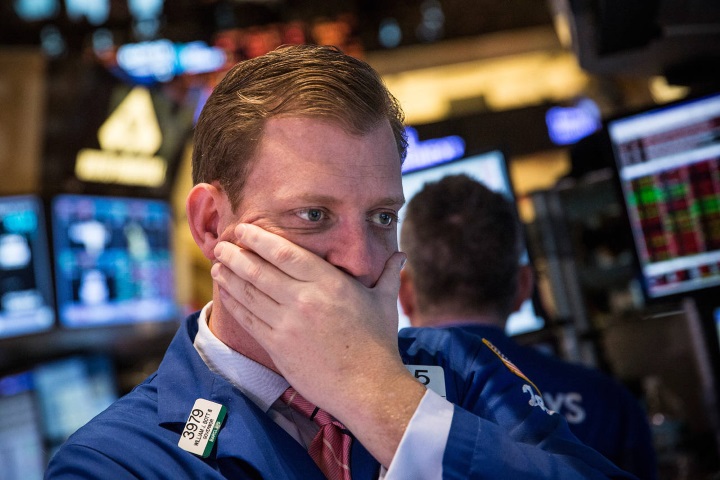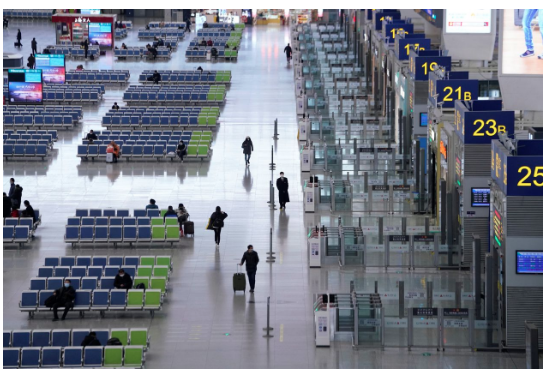With the trading week completed and encapsulated by the fear & loathing of a potential government shutdown, many were not surprised that the spending bill passed by the House was not further passed by the Senate late last night. In the 11th hour as it is called, the Senate could not agree to pass the House spending bill which resulted in an unnatural government shutdown. We characterize the shutdown as unnatural as this is not the way government should work, and work FOR the people.
Needing 60 votes in the Senate to pass the spending bill, there simply weren’t enough votes to pass the bill even as some Democrats crossed the aisle. Five Senate Democrats joined most Republicans in voting for the bill to keep the government open: Joe Donnelly of Indiana, Heidi Heitkamp of North Dakota, Doug Jones of Alabama, Joe Manchin of West Virginia and Claire McCaskill of Missouri. Five Senate Republicans voted against the House bill, including Jeff Flake of Arizona, Lindsey Graham of South Carolina, Mike Lee of Utah and Rand Paul of Kentucky. Senate Majority Leader Mitch McConnell also voted “no,” so he will be able to call up a stopgap budget for another vote later.
In a statement late Friday, White House press secretary Sarah Huckabee Sanders said the Trump administration would not negotiate “the status of unlawful immigrants while Democrats hold our lawful citizens hostage over their reckless demands.
According a recent CNN poll, the reality amongst the people is that their greater desire was to not experience a government shutdown. The poll pinned a government shutdown against the Deferred Action for Childhood Arrivals program or DACA.

So where do we go from here is the likely and most poignant questions many will have? Negotiations and potentially votes are expected to continue over the weekend and into next week. McConnell said he will offer an amendment to extend government funding until Feb. 8, which Sen. Lindsey Graham championed on Friday.
So how have markets performed through a government shutdown throughout history you might be asking?

Based on the table above, provided by FactSet, investors may not have all that much to worry about. Previous shutdowns haven’t corresponded with major stock-market selloffs. Data shows that markets have shown only minor weakness during shutdowns, with the S&P 500 falling an average of 0.6% over the period of the closure, according to data from LPL Financial. The benchmark index was only positive in 44.4% of the 18 shutdowns going as far back as 1976. With that said, the markets didn’t express the same RSI as today’s market going into the shutdown, or the same valuation; these are additional points of interest that may make “this time different”.
However, volatility increased strongly at the onset of trading during government shutdowns and was found to be relatively short-lived. As such, and with greater participation amongst the investor community within the VIX complex nowadays, it might be expected that any bump to volatility from the shutdown will be pounced on by the short-VOL crowd. Additionally, this might prove the optimal opportunity for those hedged with VIX options to capture the advantage of any spike in the VIX by taking profit, also resulting in VIX-ETP decay over time.
Without a new spending bill, federal employees will be furloughed, but the U.S. mail will be delivered and military personnel will remain on duty.
OPERATIONS THAT WILL BE HALTED:
- Most FDA safety activities
- IRS will halt most audits and won’t issue refunds
- FAA’s aircraft registry will close, halting the delivery of new aircraft and the sale of used ones
STILL OPERATING (ALTHOUGH WITH LIMITED SERVICE IN SOME CASES):
- Federal courts
- Social Security benefits
- Veterans hospitals
- USDA food inspections
- Justice Department’s law-enforcement activities/special counsel’s Russia investigation
- Customs and Border Protection
- TSA and air-traffic controllers
- DOT railroad inspections
- Mail delivery
- Active-duty military
- Federal prisons
- Federal financial aid
- Medicare
- IRS tax collections and criminal investigations
- Federal Reserve (though certain statistical reports may be delayed if shutdown goes into February
- Energy Department (some operations limited until available funds are exhausted)
- State Department (some operations limited until available funds are exhausted)
- EPA (until funds are exhausted)
- Transportation Department will furlough just over 37% of its roughly 55,000 employees
- Health and Human Services (around 50% of staff furloughed)
- SEC open for limited time (although at some point the SEC would stop processing new and pending corporate registration statements)
- National parks
- The National Gallery of Art, Smithsonian museums and National Zoo (closed after Sunday)











So, business as normal. Non critical gov entities get a small vacation and frankly, who gives a crap besides those limited workers? What are your thoughts on how volatility will respond? I know we’ve had shutdowns in the past, how did volatility respond in the past? @seth-golden
Volatility jumped significantly in 2013. But I’m not certain that will be the same outcome this time. So many political issues and uncertainties in recent years have all been brushed aside, so I just don’t know if that will or won’t be the case this time around.
Far more money has been lost by investors trying to prepare for corrections than has been lost in corrections themselves.
(Famous quote that I read somewhere). And especially/particularly in times like these (strong bull market/improving economic conditions).
Very good point Jim!